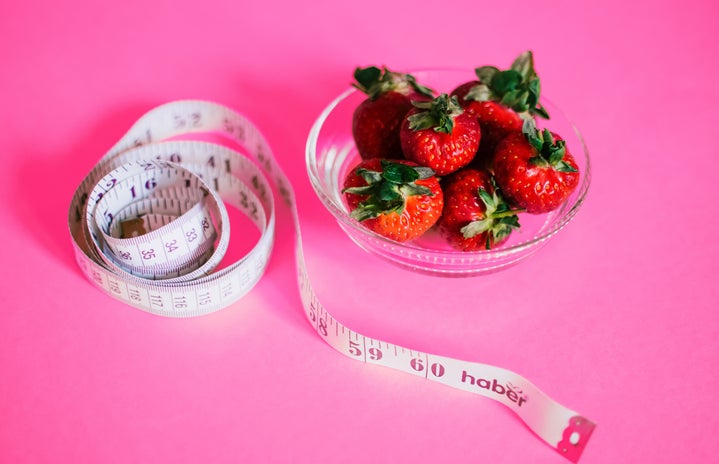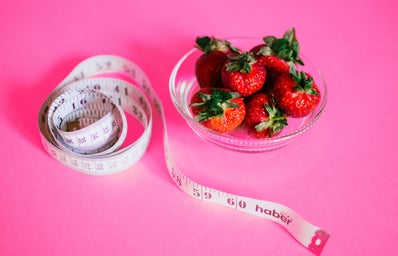Amazing progress has been made in terms of body positivity and acceptance in the last few decades. I find it quite ironic how drastically our standards and trends have shifted. We went from, “Oh no, does this skirt make my butt look big?” to, “How can I make my butt look bigger?” This switch was more positive for me since I have always been a curvier person. Of course, simultaneously, this new trend meant girls who were naturally thinner were now going to be made to feel bad for something that was out of their control. Now, we are moving away from being told that we need to achieve some unattainable standard of beauty. Instead, it is becoming more normal for people to accept their bodies for how they are. As someone who has never felt too confident in my own body, I’m all here for it. But what happens when this new ideal is taken too far?

At my highest weight yet during my senior year of high school, I remember being quite miserable. Before this point, I had always been on the bigger side but had never actually experienced legitimate concern in regards to my weight. I was just as insecure as the next teenage girl and occasionally dieted. While I think it’s sad and unnecessary that I ever obsessed over my weight when I was at a perfectly healthy weight to begin with, this time was different. I had been taking a new form of birth control for some months to combat my painful hormonal acne which caused me to gain weight more rapidly than I ever had before. I weighed about 20 pounds more than I do now, and hadn’t realized I had gained that much weight in such a short timespan or what the cause was. When my clothes stopped fitting entirely, reality hit. I spoke to my doctor and decided to stop taking the birth control but the pounds I gained stayed around long after I quit the pill.
That year, the first day of school, school dances, graduation and really any event that involved picture-taking made me incredibly anxious because I felt so insecure in a body that I just couldn’t accept. I tried to “love” my body but couldn’t. There was no way to hide that I was overweight and no way to make me feel better about it. What I could do, though, was lose weight. Yet when I told my friends about my plans to lose the weight, they were much less than supportive. Their responses ranged from “Be happy with your body, Mal,” “Love yourself,” “You look so good just the way you are,” all the way to complete lies such as “But you’re already sooooo skinny!” The thing is that I wasn’t skinny, I didn’t feel like I looked good, and I certainly wasn’t happy. I ignored these responses but even when I made attempts to eat healthier around my friends after, they were always sure to comment on my actions and express their “concern” with my new lifestyle. In that moment, I realized that the “body positivity” trend is just as dangerous as diet culture.
While our society perpetuates body positivity more than diet culture these days, the truth is that it isn’t necessarily better. The truth, in fact, is that both of these mindsets can be toxic. I think the reason for this is because they are views that have been manifested through something that is inherently destructive: social media. Social media influencers tell you to love yourself, meanwhile they are facetuning their photos in a perfectly imperfect way. Upon first glance, or even upon deep analysis of each photo they post, the viewer may not believe anything about it has been doctored. There is just enough flaw left in the picture for the viewer to not feel cheated, but enough imperfection subtracted so that the photo is aesthetically pleasing. So, what does this mean? It means that we need to take the opinions of strangers we find on the internet with a grain of salt. We do not have to discredit their opinions entirely, but we must form our own ones. We also cannot take their instruction wholly; they are not doctors, they have not been trained. They are people just like us.

What I have learned is that it is okay to want to be a healthier person. It is okay to be unhappy with your body and to want to improve it. It is also okay to love your body as it is. It is okay if you do not want to change a single thing. What is not okay is making others feel bad on their journey to bettering themselves just because it is not what we want for ourselves. The most important thing is to find balance and to not let your appearance or certain standards consume you. You have to find what works for you. In my own life, I am prioritizing my happiness and doing what makes me feel the best. That is what works for me.


